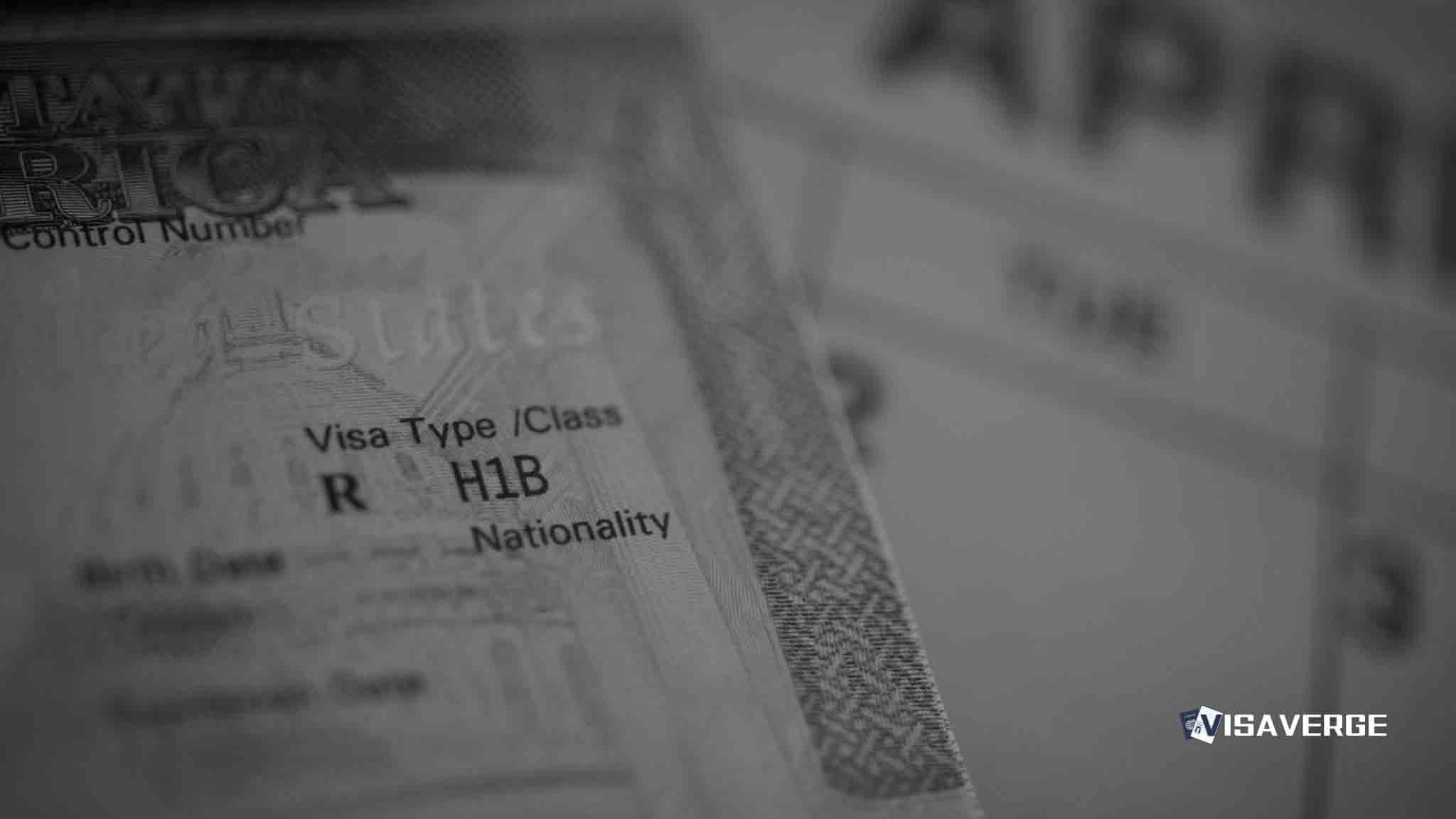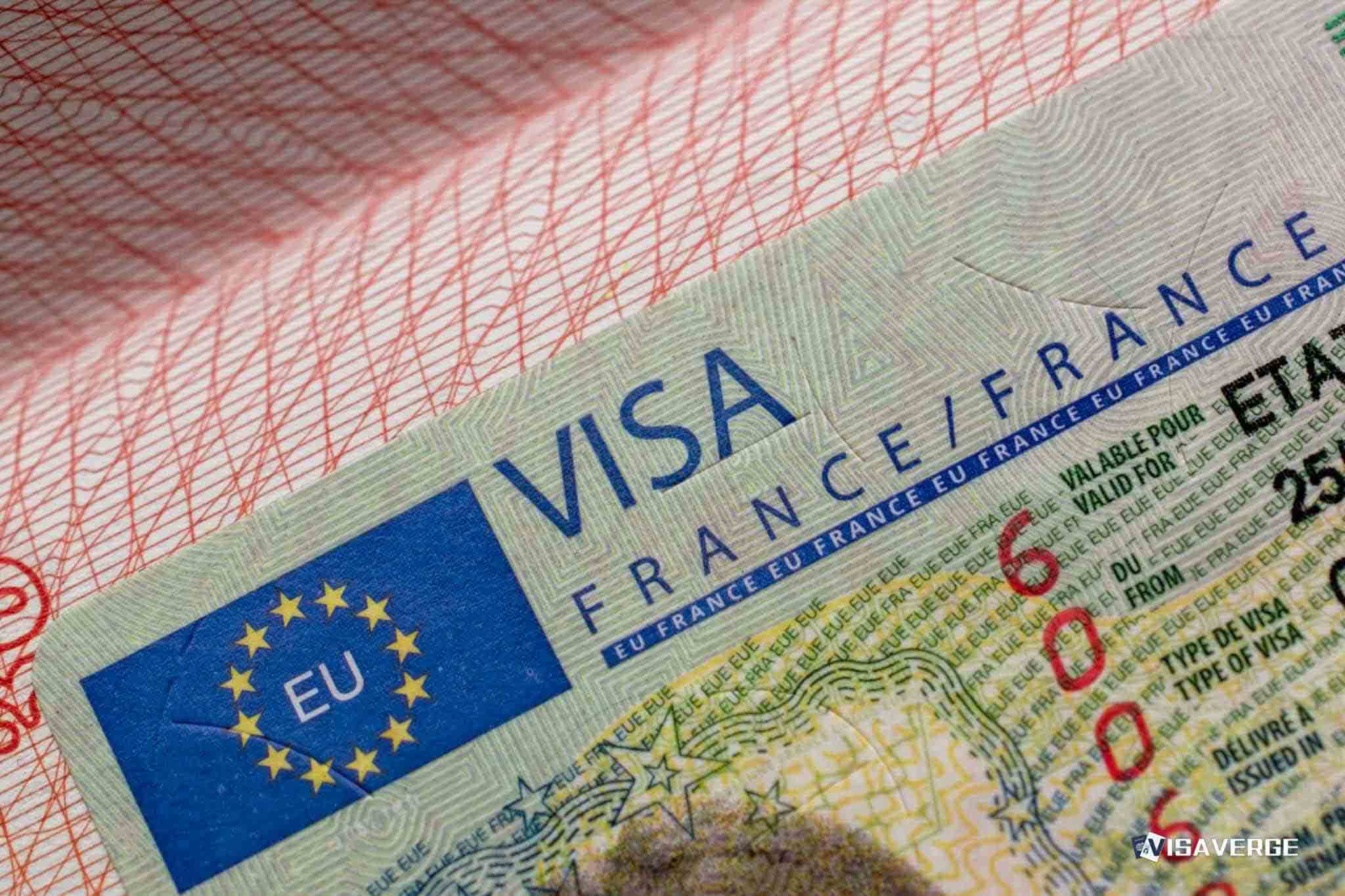President Trump’s new rule imposing a $100,000 Fee on new H‑1B petitions took effect just after midnight on September 21, 2025, upending hiring plans across the United States’ tech sector and sending skilled workers to look at Europe instead. The order, signed on September 19, 2025, applies to any new H‑1B filing after the effective date and runs through September 21, 2026, unless changed or extended.
While already approved petitions and current H‑1B visa holders are not covered by the fee, the sudden shift has created widespread confusion. Employers warned staff to avoid international travel, and global talent began weighing options in Germany, France, and the Netherlands.

Immediate market reaction and employer concerns
According to analysis by VisaVerge.com, the size and speed of the change have shaken confidence in the U.S. work-visa system at a moment when companies depend on international hiring for advanced engineering, AI, and cybersecurity roles.
- Policy analysts call the $100,000 Fee unprecedented in H‑1B history.
- Startups and smaller employers are expected to be hit hardest, with many pausing or cancelling planned hires.
- Tech firms that plan headcount months in advance are revisiting budgets and timelines.
- Recruiters report candidates pulling out of late-stage offers or asking to work from Europe rather than relocate to the U.S.
Travel, mobility, and workforce anxiety
Government guidance released after the rollout clarifies that existing H‑1B holders can continue to travel and reenter; they are not subject to the new payment. But the early days brought travel chaos.
- Some companies told H‑1B employees to avoid trips abroad until border officers and consulates had clear instructions.
- Anxiety is high among workers with pending offers, trailing families, or assignments requiring movement between offices.
- Even workers already inside the U.S. are chilled by the prospect of a six-figure fee for any new petition, affecting normal mobility and role changes.
Important: Existing H‑1B holders and petitions filed before the cutoff are not retroactively affected — but the environment remains volatile.
Scope of the order (what it covers and what it does not)
The order is narrowly scoped but consequential. It applies only to new petitions filed after September 21, 2025, including those for the 2026 H‑1B selection cycle.
It does NOT affect:
– Petitions filed before September 21, 2025
– Already approved petitions
– Individuals holding valid H‑1B visas
– Extensions, amendments, or changes of employer for those already in the U.S.
For many employers, that carveout prevents immediate mass disruption for current staff. But it does not address the broader hiring problem: each new hire filed after the cutoff now carries a $100,000 fixed cost.
Employers’ strategic responses
Companies that planned to bring in new graduates or experienced hires must now account for the fee per new filing. Budget officers are deciding whether to:
- Shift roles abroad to avoid the fee.
- Hire in European hubs with lower costs, quicker processing, and more stable residence pathways.
- Absorb the fee for a small number of elite hires and locate others overseas.
Teams dependent on H‑1B talent—data scientists, chip designers, robotics engineers—are reassessing where to base future projects.
Europe’s recruitment push and attractive options
European countries have seized the moment, promoting alternatives that look predictable and affordable to tech professionals:
- Germany: Promoting the Skilled Immigration Act and the EU Blue Card for STEM professionals.
- France: Highlighting its Tech Visa aimed at startup ecosystems and family-friendly options.
- Netherlands: Drawing interest with the Highly Skilled Migrant program—no lottery and simpler steps.
Recruiters in Berlin, Paris, and Amsterdam report increased inquiries from workers who would previously have aimed for Silicon Valley. Employers with dual footprints in the U.S. and Europe say they are ramping up hire plans in Europe to keep projects on track without absorbing new U.S. costs.
Who is most affected
- Large firms: May pay the fee selectively for key hires.
- Startups and venture-backed founders: Face the deepest squeeze, since the fee can equal many months of salary and tilt investment toward Europe.
- International students: Those who once expected an H‑1B after graduation are reconsidering careers in Europe for lower costs and faster routes to long-term status.
For candidates and families, predictability is as important as speed; fewer sudden policy swings in Europe is a strong draw.
Travel policies and contingency planning
Travel fears remain a flashpoint despite official clarifications. HR teams are adjusting policies to reduce risk:
- Moving major meetings online.
- Scheduling critical client visits around visa timelines.
- Stockpiling contingency plans, including temporary remote work from Canada or Europe.
- Accelerating in‑country role changes that do not require a new petition.
Duration and long-term uncertainty
The order’s duration—through September 21, 2026, unless extended—adds strategic uncertainty. One year is long enough to affect product launches, lab locations, and university recruiting.
- Universities and employers worry about a pipeline effect: fewer students choosing U.S. graduate programs could deepen talent shortages in a few years.
- Immigration attorneys emphasize the fee does not retroactively affect approved cases, but advise careful documentation and vigilance for further updates.
Official federal information on H‑1B classification remains available from U.S. Citizenship and Immigration Services H‑1B overview.
Europe vs. U.S.: comparative advantages
- Germany: Clear track for STEM professionals through the EU Blue Card.
- France: Family-friendly program and founder support via the Tech Visa.
- Netherlands: Simple, employer-driven model that attracts mid-career specialists through the Highly Skilled Migrant program—no lottery and simpler steps.
None of these systems impose anything close to a $100,000 Fee, nor rely on sudden sweeping changes. Tech clusters—Munich, Paris‑Saclay, Eindhoven—are seeing more inbound interest from teams that once assumed California would be their destination.
What employers and candidates are asking now
Recruiters report candidates asking key questions that shape hiring decisions:
- Will the role require a new filing after September 21, 2025?
- Can the work be done from a European hub if needed?
- Is the company willing to cover the $100,000 Fee if a new petition is unavoidable?
Answers to these questions often determine whether a candidate signs.
Key takeaways and near-term outlook
- The U.S. remains a global leader in research, capital, and company scale, but the $100,000 Fee raises barriers and reduces predictability for international talent.
- Europe’s advantage is not only lower cost but also stable, family‑friendly pathways to residence and eventual citizenship.
- Employers are deploying hedges: splitting teams across borders, building parallel groups in Europe, and advising candidates to start abroad with potential later transfers to the U.S.
- The next months will test how durable this shift is: if the fee remains through late 2026, Europe’s outreach could convert short-term movement into a longer trend.
Warning: With the rule already in force, companies and workers should document timelines, keep careful records of filing dates, and monitor updates from federal agencies.
Policy Changes Overview
- The order was signed on September 19, 2025, and took effect at 12:01 a.m. EDT on September 21, 2025.
- It imposes a $100,000 Fee on any new H‑1B petition filed after the effective date, including the 2026 selection cycle.
- It does not affect petitions filed before September 21, 2025; already approved petitions; current H‑1B visa holders; or extensions, amendments, and in‑country employer changes.
- The policy is set to last through September 21, 2026, unless extended or changed.
Impact on Applicants and Employers
- Workers considering their first U.S. role face the toughest choices; the fee can derail many offers, particularly at smaller firms.
- Some candidates will still pursue the U.S. track if the role is unique, the employer agrees to pay, or long‑term upside justifies it.
- Others will choose Germany, France, or the Netherlands for lower fees, clearer steps, and predictable routes to residence.
- Employers focused on cost and time to product may accelerate European hiring while monitoring U.S. policy developments.
The combination of a hard effective date (September 21, 2025), a high fee, and travel caution has pushed a notable share of global talent to look across the Atlantic. For now, every new H‑1B decision is being treated as a strategic call rather than a routine administrative step in a season of fast-moving change.
This Article in a Nutshell
An executive order signed September 19, 2025, implemented a $100,000 fee on all new H‑1B petitions filed after 12:01 a.m. EDT on September 21, 2025, effective through September 21, 2026. The policy exempts petitions filed before that cutoff, already approved petitions, and current H‑1B visa holders, including extensions and in‑country employer changes. The measure prompted immediate market disruption: startups and small employers face major cost pressures, recruiters report candidates withdrawing or preferring European remote work, and firms are shifting hiring to Germany, France, and the Netherlands. Travel confusion emerged early but eased after government clarifications. Employers now weigh relocating roles overseas, absorbing fees for select hires, or delaying hiring. The one-year window introduces strategic uncertainty for product timelines, university pipelines, and long-term talent planning.








